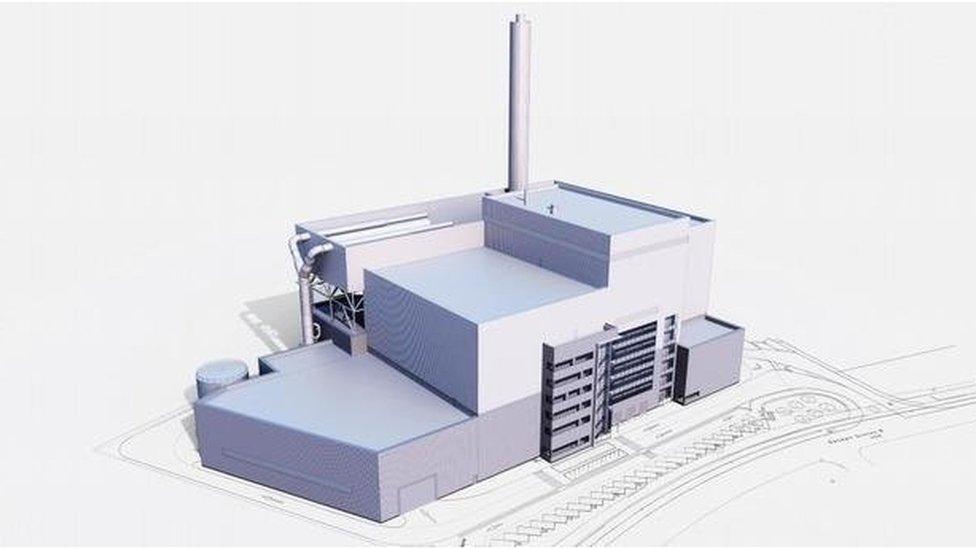Kirk Sandall: Plans for £200m waste-to-energy incinerator approved
- Published

The facility would treat up to 300,000 tonnes a year, with 90% of waste diverted away from landfill sites, according to officials
Plans to build a controversial £200m waste-to-energy incinerator in South Yorkshire have been given the go-ahead.
Doncaster Council's planning committee approved the Kirk Sandall development, which will burn waste to generate electricity for the borough.
The facility will treat up to 300,000 tonnes a year, with 90% of waste diverted away from landfill sites, according to officials.
Opponents had cited concerns over traffic and increased pollution.
The site was given permission to operate on a 24-hour basis, with waste only accepted during daytime hours.
The Environment Agency also included a condition to raise the site by nearly almost 30ft (9m) to offset flooding and HGVs will be prohibited from using Forstead Lane in Bentley to access the site.
However, some local residents and councillors feared the site would increase the number of HGVs in the area and impact on air quality.
Edenthorpe and Kirk Sandall councillors Andrea Robinson and David Nevett said it would have "a considerable" environmental impact.
But Stainforth & Barnby Dun councillor Gary Stapleton said if the application was rejected waste from Doncaster would be shipped over to Sheffield, "causing more harm to the environment".
Five councillors voted in favour of the proposals while three voted against, according to the Local Democracy Reporting Service.
Applicant James Holsten, from BH Energy Doncaster, said: "We believe this project has the potential to be a highly attractive infrastructure investment into the area.
"This will provide a vital waste management solution and energy generation capability. The scheme represents a capital investment into Doncaster of in excess of £250m.
"Our understanding is this will be one of the largest inward investments in the area over the last 20 years."

Follow BBC Yorkshire on Facebook, external, Twitter, external and Instagram, external. Send your story ideas to yorkslincs.news@bbc.co.uk, external.